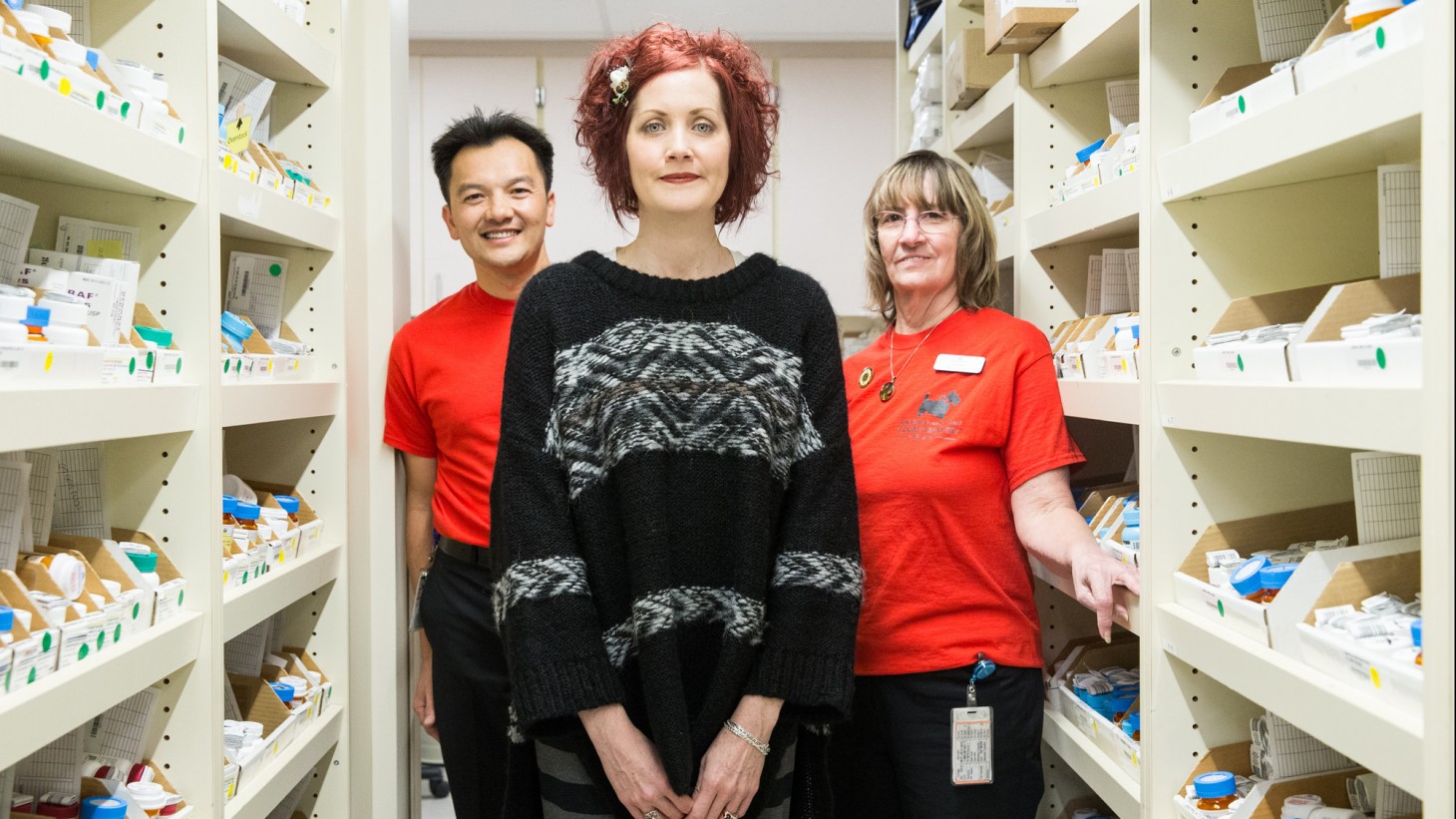Hank Fall 2015
See the whole issueFrom the Desk of Henrietta: Put Me In, Coach

Consultants such as Shannon Cazinha (center) can coach teams on the best ways to improve performance.
Helping teams stay in the game
You say your unit-based team has reached Level 5 on the Path to Performance? Great, everyone take the rest of the week off!
Your UBT is stuck at Level 1 and has been for years? Just hide in a dark corner and hope no one notices.
Not so fast.
Teams soar. Teams stumble. And we need them all to stay in the game.
Unit-based teams are Kaiser Permanente’s platform for improving performance. They’re also the union coalition’s instrument for amplifying workers’ voices in the workplace. All of which has paid off for KP members and patients, through UBTs’ efforts to improve quality, service and affordability. None of which is easy for teams to pull off.
Enter union partnership representatives and UBT consultants. They are recruited from frontline positions in union and management, so they know firsthand what it takes to deliver high-quality health care. They also receive special training that enables them to coach and mentor unit-based teams.
Our leaders knew teams would need such support. But it’s a balancing act. The tightrope for these folks is to gradually build the skills and confidence among team members, then step back at the right time so teams can fly on their own.
Few of us can truly go it alone. We all benefit from coaching—someone to hold up a mirror and offer frank advice (diplomatically delivered!) on how to improve in our jobs. A consultant’s most important skills are listening and observing. Those are skills we’d all do well to improve.

